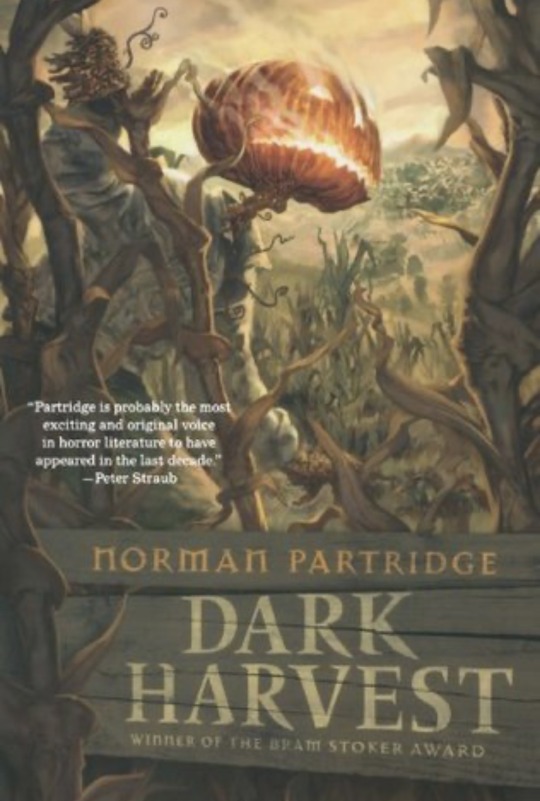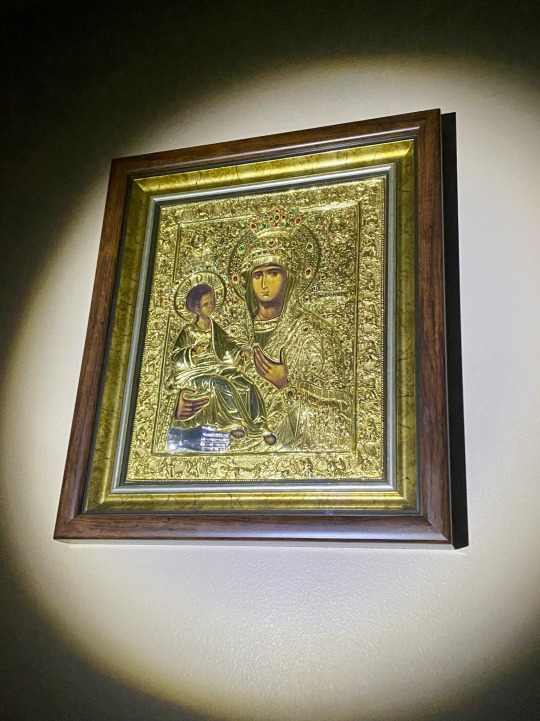#john of damascus
Explore tagged Tumblr posts
Text

THE DESCRIPTION OF SAINT JOHN OF DAMASCUS (John Damascene) Feast Day: December 4
"I do not worship matter, I worship the God of matter, who became matter for my sake and deigned to inhabit matter, who worked out my salvation through matter. I will not cease from honoring that matter which works for my salvation. I venerate it, though not as God."
John was born into a wealthy family at Damascus and spent his entire life under Islamic rule. The ancestors of John, according to his biographer, had alone remained faithful to Christianity when Damascus fell into the hands of the Arabs. They commanded the respect of the conqueror, and were employed in judicial offices of trust and dignity, to administer, no doubt, the Christian law to the Christian subjects of the Sultan. His father, besides this honorable rank, had amassed great wealth; all this he devoted to the redemption of Christian slaves to whom he gave freedom. John was the reward of these pious actions.
John was baptized immediately on his birth, probably by Peter II, bishop of Damascus (and afterwards a sufferer for the Faith). The father was anxious to keep his son aloof from the savage habits of war and piracy to which the youths of Damascus were addicted, and to devote him to the pursuit of knowledge. The Saracen pirates of the seashore neighboring to Damascus swept the Mediterranean and brought in Christian captives from all quarters. A monk named Cosmas had the misfortune to fall into the hands of these freebooters. He was set apart for death when his executioners, Christian slaves no doubt, fell at his feet and entreated his intercession with the Redeemer.
The Saracens inquired of Cosmas who he was. He replied that he had not the dignity of a priest; he was a simple monk, and burst into tears. The father of John was standing by, and expressed his surprise at this exhibition of timidity. Cosmas answered, "It is not for the loss of my life, but of my learning, that I weep."
Then, he recounted his attainments, and the father of John, thinking he would make a valuable tutor for his son, begged (or bought) his life, gave him his freedom, and placed his son under his tuition. The pupil in time exhausted all the acquirements of his teacher. The monk then obtained his dismissal and retired to the monastery of St. Sabas, where he would have closed his days in peace, had he not been compelled to take on himself the bishopric of Majuma, at the port of Gaza.
The attainments of the young John of Damascus commanded the veneration of the Saracens; he was compelled reluctantly to accept an office of higher trust and dignity than that held by his father. As the Iconoclastic controversy became more violent, John of Damascus entered the field against the Emperor of the East, and wrote the first of his three treatises on the Veneration Due to Images. This was probably composed immediately after the decree of Leo the Isaurian against images in 730. Before he wrote the second, he was apparently ordained priest, for he speaks as one having authority and commission. The third treatise is a recapitulation of the arguments used in the other two. These three treatises were disseminated with the utmost activity throughout Christianity.
His writings, especially his De Fide Orthodoxa, one of the most notable theological works of antiquity, has had great influence on the theologians of both East and West. He also wrote poetry and some of his poems are used in the Greek liturgy. John died at Sabas, in December, and was made a Doctor of the Church by Pope Leo IIII in 1890.
Source: Catholic Exchange
2 notes
·
View notes
Video
youtube
St. John of Damascus: A Christian Scholar Dialogue on Islam
4 notes
·
View notes
Text

GET BOOKT
A guide of books to gift the people in your life and yourself!

For the people looking to put a different kind of magic into their holidays…
The Fragile Threads of Power by V. E. Schwab
For the genre connoisseur with a love for high concepts in short form…
Africa Risen edited by Sheree Renée Thomas, Oghenechovwe Donald Ekpeki, & Zelda Knight (now in paperback!)
For the treasured party member who’s saved your character’s life many times on TTRPG night…
Bookshops & Bonedust by @travisbaldree
━ ˖°˖ ☾☆☽ ˖°˖ ━

For those who love (or possibly are 👀) gay werewolves
Wolfsong by TJ Klune
For the mutual who devoured the epic highs and lows of Riverdale and craves more…
The Luminaries by Susan Dennard, now in paperback!)
━ ˖°˖ ☾☆☽ ˖°˖ ━

For your brave and luckless friend, constantly trapped in transit purgatory and upset about it…
The Dead Take the A Train by Cassandra Khaw & Richard Kadrey
For the true buckaroos trotting beside you…
Camp Damascus by @drchucktingle
For the friend who says “but have we considered burning it all down?” on an alarming and refreshingly regular basis…
Manhunt by Gretchen Felker-Martin
━ ˖°˖ ☾☆☽ ˖°˖ ━

For the friend who has a hot date on Friday night (with their book)...
Fall of Ruin and Wrath by Jennifer L. Armentrout
For the avid doodler who sketches plans for their future volcanic villain lair equipped with a space laser…
Starter Villain by @jscalzi
━ ˖°˖ ☾☆☽ ˖°˖ ━
Not enough books? We agree. Check out our other GET BOOKT guide.
#get bookt#tor books#booklr#gift guide#the dead take the a train#cassandra khaw#richard kadrey#camp damascus#chuck tingle#manhunt#gretchen felker martin#the luminaries#susan dennard#starter villain#john scalzi#africa risen#sheree renée thomas#oghenechovwe donald ekpeki#zelda knight#wolfsong#tj klune#the fragile threads of power#v e schwab#the fall of ruin and wrath#jennifer l armentrout#bookshops & bonedust#bookshops and bonedust#travis baldree
5K notes
·
View notes
Video
youtube
St. John of Damascus: A Christian Scholar Dialogue on Islam
0 notes
Text
Et in Spiritum Sanctum, Dominum et vivificantem: qui ex Patre Filioque procedit. Qui cum Patre et Filio simul adoratur et conglorificatur
And [I believe in] the Holy Spirit, the Lord, the Giver of Life, Who proceeds from the Father and the Son, Who with the Father and the Son is adored and glorified.
And the Holy Spirit is the power of the Father revealing the hidden mysteries of His Divinity, proceeding from the Father through the Son in a manner known to Himself, but different from that of generation.
- John of Damascus (Exposition on the Orthodox Faith, Book I, Chapter XII)

𝘛𝘩𝘦 𝘎𝘰𝘥𝘩𝘦𝘢𝘥 𝘚𝘩𝘪𝘯𝘦𝘴 𝘍𝘰𝘳𝘵𝘩...
35 notes
·
View notes
Text
Character, book, and author names under the cut
Rose- Camp Damascus by Chuck Tingle
Zanja Na'Tarwein- The Elemental Logic Series by Laurie J. Marks
Father Victor Ardelian- What Manner of Man by St John Starling
Sarcean- Dark Rise Series by C.S. Pacat
#Rose#Camp Damascus#Chuck Tingle#Zanja Na'Tarwein#The Elemental Logic Series#fire logic#Elemental Logic#Laurie J. Marks#Father Victor Ardelian#Victor Ardelian#What Manner of Man#St John Starling#Sarcean#Dark Rise Series#Dark Rise#Dark Heir#C.S. Pacat#lgbt books#polls#queer book character tournament 2.0
87 notes
·
View notes
Text
God, in His very benevolence, often allows misfortunes to befall even the righteous, so that He may, in this way, manifest to others the latent faith hidden in him
Saint John of Damascus
115 notes
·
View notes
Text
Favorite Horror Novels I Read in 2023:








#horror#horror novel#i need a reading tag#horror books#mister magic#dark harvest#the cabin at the end of the world#camp damascus#i think Brother was the most surprising for me in how much i loved its awful nastiness and gut punch ending#but props to Rachel Harrison for making a story about how your mother loves you enough to make you hate her#and never be nostalgic for a home that will gleefully kill you#two out of the three books here have terrible film adaptations#bones and all innocent#especially since Luca Guadagnino worked overtime to make the movie about queer life on the margins#john waters and i agree: timothee was doing his best impersonation of a butch lesbian#also loved that Mister Magic was basically IT fanfiction on a campaign against Mormonism
109 notes
·
View notes
Text

“I do not worship matter; I worship the God of matter, Who became matter for my sake; Who deigned to inhabit matter; Who worked out my salvation through matter. I will not cease from honoring that matter which works for my salvation. I venerate it, though not as God.”
+ St. John of Damascus (On the Veneration of Icons)
#Tricheroussa#iconoclasts#St. John of Damascus#St. John Damascene#orthodox christianity#eastern orthodox#eastern orthodoxy#christianity#orthodox#orthodoxy#icons#iconography
141 notes
·
View notes
Text
“I do not venerate matter, I venerate the fashioner of matter, who became matter [through the Incarnation] for my sake and accepted to dwell in matter and through matter worked my salvation, and I will not cease from reverencing matter, through which my salvation was worked... Therefore I reverence the rest of matter and hold in respect that through which my salvation came, because it is filled with divine energy and grace. Is not the thrice-precious and thrice-blessed wood of the cross matter? Is not the holy and august mountain, the place of the skull, matter? Is not the life-giving and life-bearing rock, the holy tomb, the source of the resurrection, matter? Is not the ink and the all-holy book of the Gospels matter? Is not the life-bearing table, which offers to us the bread of life, matter? Is not the gold and silver matter, out of which crosses and tablets and bowls are fashioned? And, before all these things, is not the body and blood of my Lord matter? Either do away with reverence and veneration for all these or submit to the tradition of the Church and allow the veneration of images of God and friends of God, sanctified by name and therefore overshadowed by the grace of the divine Spirit.”
- St. John of Damascus, Three Treatises on the Divine Images
15 notes
·
View notes
Text
Enjoyed Camp Damascus. Now: Do you think it could exist in the same universe as John Dies at the End?
6 notes
·
View notes
Text
SAINT OF THE DAY (December 4)

Catholics remember and celebrate the life of the great Arab Church Father St. John of Damascus on December 4.
Eastern Orthodox Christians and Eastern Catholics, whose tradition has been particularly shaped by his insights, celebrate the saint's feast on the same day as the Roman Catholic Church.
Among Eastern Christians, St. John (676-749) is best known for his defense of Christian sacred art, particularly in the form of icons.
While the churches of Rome and Constantinople were still united during St. John's life, the Byzantine Emperor Leo III broke radically from the ancient tradition of the church, charging that the veneration of Christian icons was a form of idolatry.
John had grown up under Muslim rule in Damascus, as the child of strongly Christian parents.
His excellent education – particularly in theology – prepared him well to defend the tradition of sacred iconography, against the heresy of the “iconoclasts,” so-called because they would enter churches and destroy the images therein.
During the 720s, the upstart theologian began publicly opposing the emperor's command against sacred images in a series of writings.
The heart of his argument was twofold:
First, Christians did not actually worship images but rather, through them, they worshiped God and honored the memory of the saints.
Second, he asserted that by taking an incarnate physical form, Christ had given warrant to the Church's depiction of him in images.
By 730, the young public official's persistent defense of Christian artwork had made him a permanent enemy of the emperor, who had a letter forged in John's name offering to betray the Muslim government of Damascus.
The ruling caliph of the city, taken in by the forgery, is said to have cut off John's hand.
The saint's sole surviving biography states that the Virgin Mary acted to restore it miraculously.
John eventually managed to convince the Muslim ruler of his innocence, before making the decision to become a monk and later a priest.
Although a number of imperially-convened synods condemned John's advocacy of Christian iconography, the Roman church always regarded his position as a defense of apostolic tradition.
Years after the priest and monk died, the Seventh Ecumenical Council vindicated his orthodoxy and ensured the permanent place of holy images in both Eastern and Western Christian piety.
St. John of Damascus' other notable achievements include the “Exact Exposition of the Orthodox Faith,” a work in which he systematized the earlier Greek Fathers' thinking about theological truths in light of philosophy.
The work exerted a profound influence on St. Thomas Aquinas and subsequent scholastic theologians.
Centuries later, St. John's sermons on the Virgin Mary's bodily assumption into heaven were cited in Pope Pius XII's dogmatic definition on the subject.
The saint also contributed as an author and editor to some of the liturgical hymns and poetry that Eastern Orthodox and Eastern Catholics still use in their celebrations of the liturgy.
“Show me the icons that you venerate that I may be able to understand your faith.” — Saint John of Damascus
3 notes
·
View notes
Text


About St Benedict (left)
About St John Damascene (right)
PRE-SCHISM BRACKET ROUND 1
#st benedict#st john of damascus#st john damascene#catholic saint tournament#catholic#catholicism#catholic saints#tumblr bracket#christianity#tumblr tournament#polls#theology#tumblr polls
7 notes
·
View notes
Video
youtube
St. John of Damascus: A Christian Scholar Dialogue on Islam
0 notes
Text
youtube
#carnivàle#carnivale#carnivale hbo#s02e08#outskirts damascus#varlyn stroud#john carroll lynch#Youtube
3 notes
·
View notes
Text
Now the Greeks declare that all our affairs are controlled by the rising and setting and collision of these stars, viz., the sun and moon: for it is with these matters that astrology has to do. But we hold that we get from them signs of rain and drought, cold and heat, moisture and dryness, and of the various winds, and so forth, but no sign whatever as to our actions. For we have been created with free wills by our Creator and are masters over our own actions. Indeed, if all our actions depend on the courses of the stars, all we do is done of necessity: and necessity precludes either virtue or vice. But if we possess neither virtue nor vice, we do not deserve praise or punishment, and God, too, will turn out to be unjust, since He gives good things to some and afflicts others. Nay, He will no longer continue to guide or provide for His own creatures, if all things are carried and swept along in the grip of necessity. And the faculty of reason will be superfluous to us: for if we are not masters of any of our actions, deliberation is quite superfluous. Reason, indeed, is granted to us solely that we might take counsel, and hence all reason implies freedom of will.
St. John of Damascus, An Exposition of the Orthodox Faith, Book 2 Chapter 7
“Bat swinging at wasp nest” post but I cannot be nice about astrology people. No you did not find the one good or cute or quirky way to believe the quality of someone’s character is biologically pre-determined. Just because you found a way to not base it on race or ethnicity or gender does not make judging someone’s character on an innate and uncontrolled attribute suddenly teehee fine.
I’m even more baffled by the people going “it’s just fun!” “It’s just a hobby!!” Sure if it was something harmless. It’s not. We are quite literally talking about how you intend to judge, treat, view, respect, and interact with someone entirely differently based on an inherent trait. How are you not aghast? How are you not embarrassed? Why are you so insistent on needing to operate on a hierarchy of pre-determined character judgement?
9K notes
·
View notes